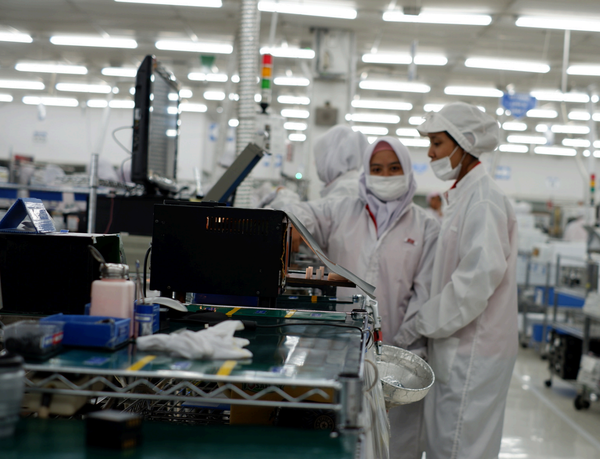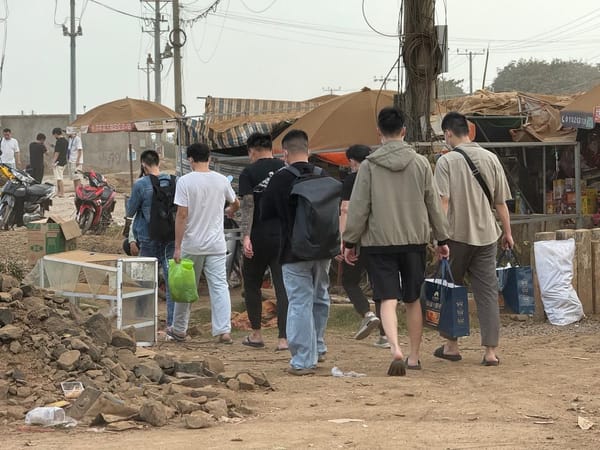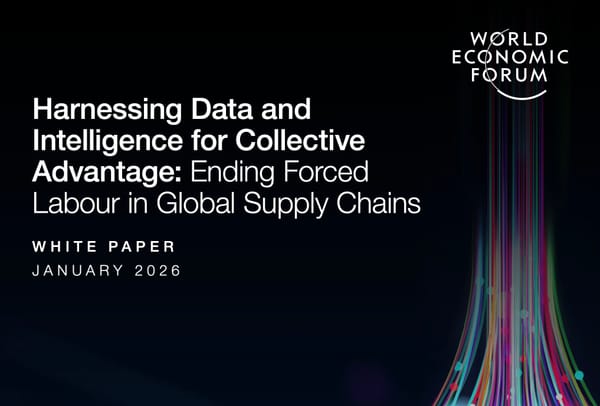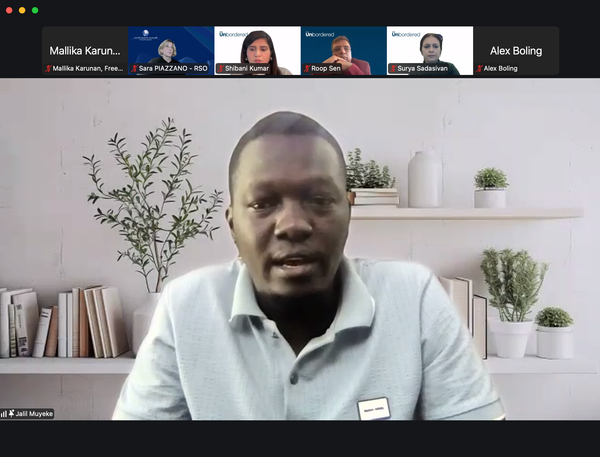The erosion of civil society programs risks the loss of valuable frontline intelligence
CSOs’ on-the-ground insights into scam operations are under threat from funding cuts, this year’s TIP Report has allegedly dropped its LGBTQ+ section, and an investigation finds evidence of forced labour in Decathlon’s supply chain.
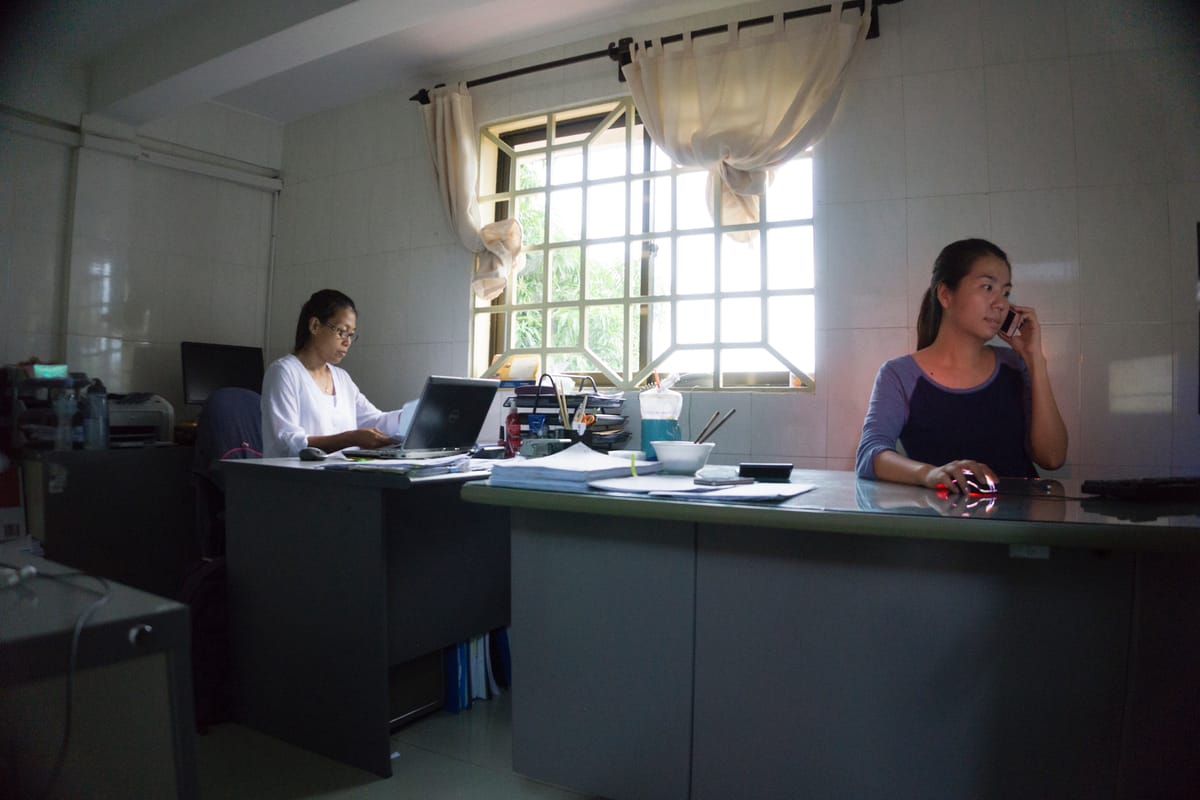
The USAID freeze has significantly increased the funding gap faced by the anti-trafficking sector, severely curtailing the ability of civil society to provide accurate data and reliable evidence on scamming compounds and other trafficking crises in Southeast Asia and beyond.
In the face of unsubstantiated reporting, deliberate misinformation, and the suppression of an independent media, the monitoring and data collection carried out by frontline anti-trafficking groups is sometimes the only reliable source of on-the-ground information on criminal scamming and related human trafficking, as we have previously reported.
In the past week, Freedom Collaborative has been talking to journalists about the impact of the freeze on anti-trafficking work, on behalf of grassroots groups for whom, in some cases, it is too risky to speak out. Our CEO, Julia Macher, has spoken about the boost the funding freeze gives to scamming operations, telling Australia’s ABC that “These scams are running at an industrial scale. If we don’t act, we won't even understand the problem as it evolves, let alone stop it… independent verification is crucial. Without funding, we lose our ability to check what’s actually true,” and explaining to Wired that, even if victims are able to escape, there is no longer anywhere for them to go, “so they get re-recruited into the centers, as they do not have any real alternative options”. In an interview with CBS News, she discussed the wider implications for global security, explaining that anti-trafficking work “helps with global stability… The work helps reduce organized crime. And if there is no response [and no one] watching these crime groups, they can start expanding, and that is very scary because then it’s a ripple effect.”
Meanwhile, our Project Coordinator, Jalil Muyeke, a survivor of human trafficking for online scamming, has spoken to The Economist about the harrowing conditions he experienced while trapped in a scam compound in Myanmar, for both a magazine article and The Economist’s new “Scam Inc” podcast. The article, published in the current issue, offers a thorough overview of the situation and insights from experts working on the ground, detailing how “online fraudsters have become rich and powerful enough to corrupt entire governments, turning whole countries into the cyber-scam equivalent of narco-states”.
However, in order to continue this kind of insightful reporting, it is crucial that civil society groups are able to continue their work on the frontlines. This was underscored recently when the Thai Government cut electricity to targeted areas along the Thai-Myanmar border, a region rife with cyber-scam compounds, framing its actions as a matter of national security. However, accounts from survivors trapped in the compounds, as well as members of Freedom Collaborative’s Trafficking for Forced Criminality Response Working Group, revealed that cutting power has had little to no effect on these operations, which can switch to back-up generators as necessary.
Exaggerated or inaccurate reporting of human trafficking data further complicates the issue, according to working group members. In a recent discussion they highlighted that, while media coverage is important, overstated figures and misleading details about victims, including their nationalities, can overwhelm public perception, disrupt coordinated responses, and erode trust. Media outlets have also mischaracterized victims removed from scam compounds as criminals, erroneously reporting mass arrests rather than detailing the complex process of victim identification, legal screening, and support. The reality is far more nuanced, they add – many victims opt to plead guilty to immigration violations to expedite deportation, in order to avoid months of waiting in government or CSO shelters for legal processing. There is additional concern about the shift in media focus toward Myanmar’s cyber-scam compounds, which risks drawing attention away from similar operations in Cambodia and Laos.
It is not the case that NGOs can simply “diversify” their funding sources, Julia Macher told ABC. “It’s clearly impossible to diversify when there is no support available and you are in a place where publicly sharing what you do puts you at risk.” Stakeholders from governments, financial institutions, private businesses and law enforcement have a vested interest in this information and should be involved in funding and protecting those civil society groups whose insights are so crucial to the response.
Here’s a round-up of other noteworthy news and initiatives:
This year’s TIP Report, published by the U.S. Department of State, will not include a section on LGBTQ+ victims, according to one of its authors. Previous TIP Reports have been very clear in pointing out the impact of human trafficking on LGBTQ communities, with the 2023 report saying: “When we partner to support vulnerable migrants, advocate for women’s rights, or enact legislation to protect LGBTQI+ individuals, we are creating a more just and equitable world that is also more impervious to human traffickers.”
Multiple children’s safety groups – including those fighting online child sexual abuse and exploitation – say their efforts have been severely hamstrung by the USAID funding freeze and other State Department cuts, according to this article.
A study titled “Modern slavery and child labour in Bangladesh’s garment sector: documenting risks and informing solutions”, conducted by GoodWeave and Rights Lab (University of Nottingham) in partnership with the Bangladesh Labour Foundation, highlights the risk of modern slavery and child labour in Bangladesh’s garment supply chains and provides concrete recommendations to industry stakeholders to advance worker and child protection in the sector.
A main supplier for sports retailer Decathlon relies on a network of forced labour and human trafficking in China, while its clothing contains cotton from the Xinjiang region, according to an investigation by Disclose. Women from the persecuted Uyghur population are forcibly enrolled to make T-shirts, shorts and other items of clothing for Decathlon shops around the world, it says.
The bodies of at least 28 migrants have been recovered from a mass grave in a desert in south-east Libya, following a raid on a human trafficking site where authorities freed 76 migrants who had been detained and tortured, the country’s attorney general has said. Since the overthrow of Libyan leader Muammar Gaddafi in 2011, the country has become a key transit route for migrants risking dangerous desert and Mediterranean Sea crossings to reach Europe.
Focus on Labour Exploitation has published its analysis of the UK’s Border, Security, Immigration and Asylum Bill, calling it a continuation of the previous government’s anti-migrant policies. The proposed legislation does not address the key drivers of exploitation and leaves victims without vital support or meaningful opportunities to recover through security and decent work, it says.
The UN Special Rapporteur on contemporary forms of slavery has issued a call for input on the worst forms of child labour, including modern slavery, human trafficking and forced labour, with the aim of taking stock of progress and charting a way forward on action which needs to be taken by states, companies including the private sector, and other stakeholders.

